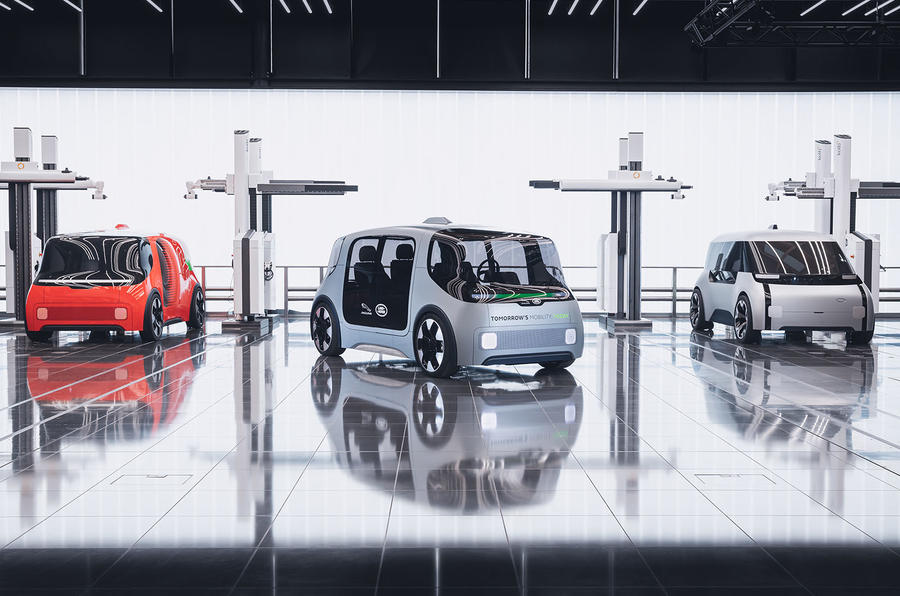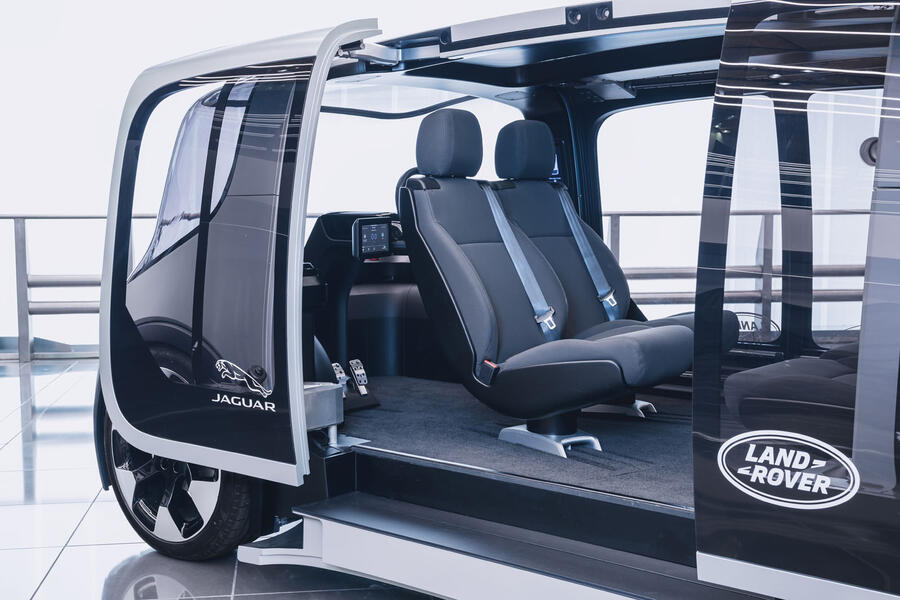Jaguar Land Rover has shocked the world of future motoring by unveiling an entirely new, fully engineered electric car platform that's capable of supporting a wide variety of autonomous, shared and private vehicle configurations.
Work on the project, which is entirely separate from JLR’s current or near-future production car range, is already so far advanced that a multi-use autonomy-ready vehicle, claimed to offer unparalleled interior space and flexibility, will begin road trials in Coventry late next year. City and West Midlands authorities have already agreed to cooperate, viewing the project as “a living laboratory for future mobility”.
Called Project Vector, the vehicle’s all-new “skateboard” platform was launched earlier today at Warwick University’s National Automotive Innovation Centre (NAIC) by JLR CEO Sir Ralf Speth, who revealed that it had been in secret development there for several years.
He cited Vector as the latest and biggest move yet towards “Destination Zero”, JLR’s ambition to achieve a future of zero emissions, zero accidents and zero congestion.

“Jaguar Land Rover understands the trends shaping modern societies,” said Speth. “Through this project we are collaborating with the brightest minds in academia, our supply chain and digital services to create connected, integrated mobility systems, the fundamental building blocks for Destination Zero. Vector is precisely the brave and innovative leap forward needed to deliver on our mission.”
The vehicle being readied for the Coventry trials is just four metres long and designed for life in the city, with its battery and drivetrain components packed into a flat floor, allowing maximum design flexibility for the body above. The experimental car’s cabin space allows seating configurations for private or shared use, or for commercial use, such as last-mile deliveries.

























Join the debate
Add your comment
What's in the background
I'm more interested in what's hiding under the tarp in the 2nd last picture, Road Rover? Roof slant too low for an Evoque.
I seriously dislike horses.
This is the anti-car, and certainly the anti-E Type.
It has more in common with an escalator.
Are Autocar about to start
Are Autocar about to start doing road tests on being a bus passenger?
These things, what ever they are, are not cars, and dont belong in Autocar. A bicycle has more in common with a car than this thing
Wheels, Seats, Windows.
It’s transport, you may not drive it, but, it’ll take you, in Town or City, wherever they’re used to your destination, what will it cost I don’t know, but, it’s not a bad solution. Autocar are being real in giving it space on their Webpage.
Peter Cavellini wrote:
do they give space a bus or taxi? Apart from the driver, what exactly is the difference